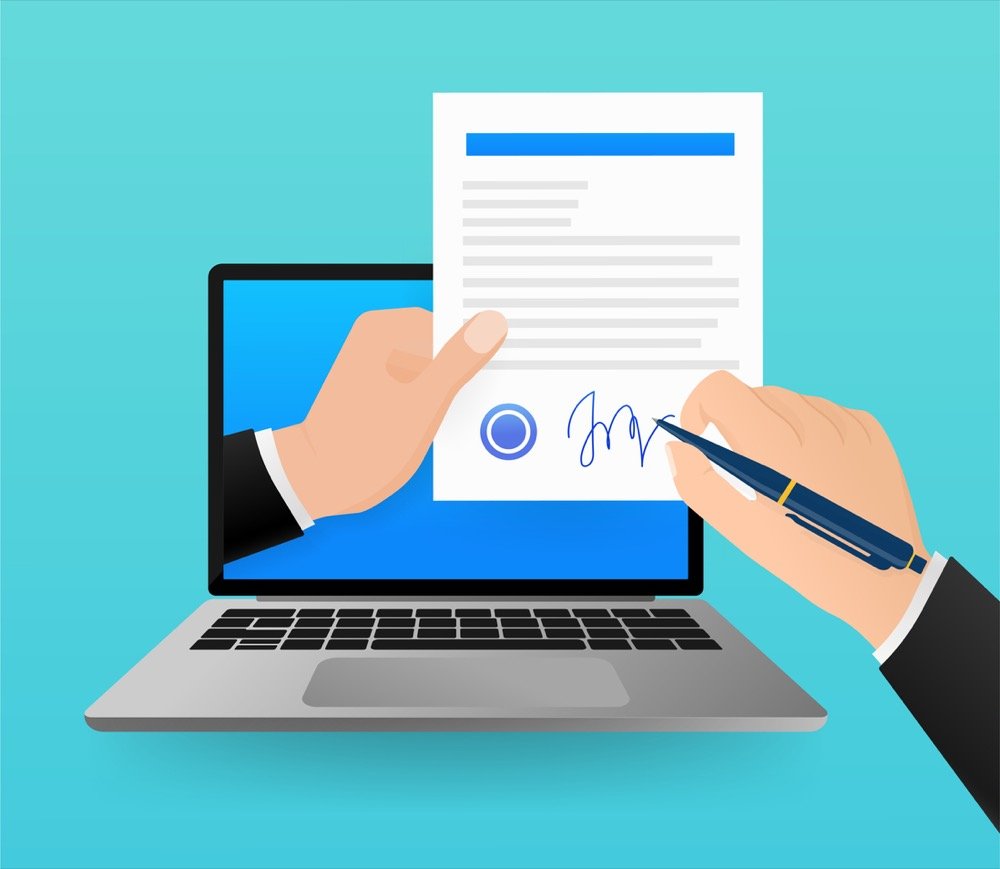Written by Black Knight – April 14, 2021
No Ink or Stamp Required: Why eNotarizations are the Next Big Thing
The challenges of in-person activities have never been more apparent than over the previous year as people, businesses and entire industries continue to feel the impact of a global pandemic. Signing and notarizing documents are critical tasks in many fields, and, if delayed, could prove to be catastrophic for the parties involved. To help overcome this challenge, more businesses and professionals are removing the in-person component from the equation and leveraging the technological advancements available in remote online notarizations (RON).
How RON Works
RON connects notaries and signatories virtually to complete a transaction whether it is related to new car loans, real estate, a legal matter or other. Electronic documents are signed remotely and, in most cases, the parties don’t even need to be in the same city, state or even country. Legislation that guides how RON works requires conducting the signing and notary process in real time on a platform that is secure and free from unauthorized interruption, as well as audio-visual quality that is clear enough for the notary and signer to see the same record being signed. To enhance security and fraud prevention, knowledge-based authentication and credential analysis are required with each transaction. Additionally, RON transactions must be recorded and then tamper-sealed. In some states, the recorded process must be kept on file for a prescribed number of years, resulting in a valid, legally binding document.
RON’s Value to Today’s Mortgage Lenders and Title Agents
In the first quarter of 2020, the U.S. real estate market was performing at peak levels and annual home prices grew to their highest in two years. But when sweeping changes stemming from the COVID-19 pandemic took effect, such as mandatory lockdowns and social distancing requirements, businesses had to find a way to keep moving forward. Many lenders and title agents switched to remote operations and leaned on RON to complete transactions without borrowers needing to set foot in an office. Records for eNotes were shattered in 2020. For example, data available shows that 462,671 eNotes were registered on the MERS eRegistry in 2020, compared to 127,178 eNotes in 2019. That’s an increase of 366% year-over-year.
Aside from the immediate benefits of keeping transactions on track during the COVID-19 pandemic, e- notarizations have many advantages that make it an attractive alternative to paper-based processes. RON’s functionality accelerates turnaround times, reduces costs, eliminates the need to travel for signing and notarizing documents, and gives homebuyers greater access to closing documents ahead of their closing date, providing them more time to review materials. In a recent survey, 82% of signers preferred to see in advance what documents they were going to encounter during a transaction.
“When the world returns to ‘normal,’ people are still going to want the convenience of doing certain transactions remotely due to busy schedules. RON is the way to enhance current processes, improve operational efficiency and deliver a better customer experience,” said Rich Gagliano, president of Origination Technologies for Black Knight.
Companies are taking note of the increasing trajectory towards a fully digital close. For example, Black Knight’s DocVerify℠ digital document verification platform enables lenders using RON to access the same notaries they currently work with and trust, but in a digital environment. Approved and certified for use in all states that allow RON, DocVerify is easy to implement with no download or install required, features the highest level of security, and can be integrated with mortgage eClosing systems, including Black Knight’s Expedite® Close.
What’s on the Horizon for RON
The emergency expansions of RON during the pandemic have started the conversation for further removing the barriers that exist for electronic transactions and signatures. Presently, eNotarization is legally authorized in all states; however, just over half of states have laws that enable their notaries to conduct remote notarizations. Nearly every state has proposed legislation to adopt RON, and in 2020 a federal push was initiated to adopt standards and policies.
Between 2019 and 2020, the number of transactions completed remotely increased by 547% with an overwhelming number of users praising the process for its safety, availability and ease. As pandemic emergency notices are lifted, expect to see further use, integration and enhancement associated with RON. For those lenders and title agents that haven’t yet adopted a process to incorporate RON, now is the time to look at adding that capability to your toolbox.

